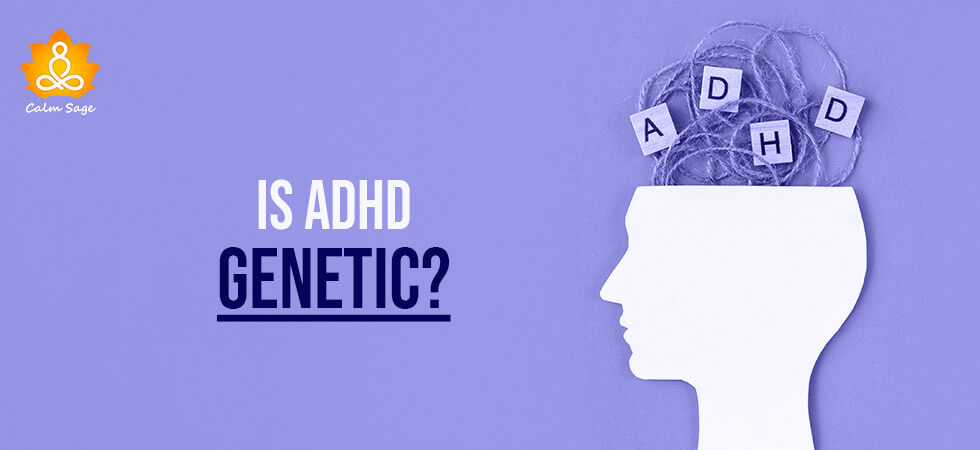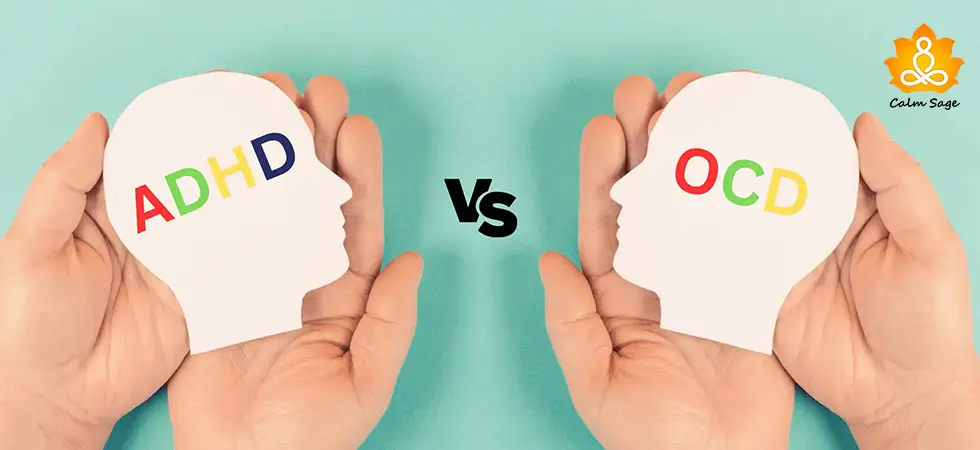Is ADHD Genetic? What You Should Know

Attention deficit hyperactivity disorder (ADHD) has a tendency of running in a family. Did you know, almost one-third of the ADHD population has inherited this neurodevelopmental condition from either one of their parents.
The researchers are putting all their energy in getting to know more about ADHD is a genetic disorder. However, there are findings that prove that ADHD can be influenced by a person’s genes but to what extent? Does it need a trigger? Or it just depends on what genetic ADHD variant you have in you?
Researchers are still looking for strong evidence that shows the relationship between some sets of genes that eventually carry ADHD from one individual to their offspring. We have just discovered the tip of the ADHD iceberg, there is a lot more we need to know about ADHD genetics.
Let’s try to dig a little deeper to find our answers… Is ADHD a genetic disorder?
But first, let’s get the basics straight;
What Is ADHD?
Attention deficit hyperactivity disorder (ADHD) is referred to as a neurodevelopmental disorder or a brain disorder that causes inattentiveness, impulsivity and hyperactivity. People who suffer from ADHD cannot stick to just one thing at a time. Their attention shifts as quickly as their thoughts.
Symptom Of ADHD
- Inattentiveness,
- Daydreaming,
- Lack of focus and concentration,
- Forgetfulness,
- Risk taking behavior,
- Can’t follow instructions easily,
- Frequently Interrupt people,
- Easily distracted,
- Carelessness, etc
ADHD in childhood is different from Adult ADHD but the base symptoms remain the same, both in childhood and adulthood inattentive or hyperactivity or both is present. Now that we have recollected our basic understanding of ADHD, let’s move on to understanding is ADHD hereditary or genetic?
Is ADHD Genetic or Hereditary?
According to some research, a particular kind of gene that creates dopamine can be linked with carrying ADHD. Let’s understand that ADHD is a biological disorder and it is only logical of it to interfere with our genetics or heredity. So, if you are blaming your parenting style or playing too many video games, that has nothing to do with ADHD.
According to the findings of a good amount of research exploring – ‘is ADHD genetic or heredity?’, it was found that ADHD has a tendency to run in a few families.
For example, one-third of children inherit ADHD from their fathers and did you know that the rate of developing ADHD in twins is even higher?
ADHD is a very complex disorder, which is the reason why researchers are taking so much time to determine exactly which gene is responsible for carrying ADHD. Like I mentioned before, the gene that produced dopamine can be very closely linked to ADHD, therefore, along with many other sets of genes, the dopamine gene is being studied very closely.
There are some research studies that add to the answer for – ‘Is ADHD Genetic?’. There are findings that demonstrate that genetics may play a role in developing ADHD but there are some environmental factors that can aid the process as well.
So, we can come to a conclusion that ADHD can be genetic but in the presence of some environmental factors the risk/chances of developing ADHD becomes much higher. So the question that now arises is that is ADHD only genetic or there are other factors responsible as well? Let’s find out…
Is ADHD Genetic Or Developed?
From all the data and information I read on ADHD, I realized that we still haven’t found that one particular cause of ADHD. This means we can’t say for sure whether ADHD is genetic or developed. However, some factors have been identified which are responsible for causing ADHD.
Let’s have a look;
- Family member with ADHD: if you have someone in your family with ADHD, your chances of developing the same are very high. Genetics plays a role here.
- Twins: according to an Australian study, Twins have a high chance of having ADHD when compared to non-twins
- Missing DNA: in a 2010 British study it was found that people with ADHD have a set of missing DNA. Therefore, people with missing DNA are more likely to have ADHD, again a Genetic cause.
- Thin brain tissues: in a study, it was found that the area of the brain that controls attention has thinner brain issues in people with ADHD. Brain tissues also play a role.
There are other factors that put you at risk of developing ADHD, such as;
- Exposure to lead,
- Traumatic Brain Injury,
- Mother smoking while pregnant,
- Premature birth, and other environmental factors.
That’s All Folks!
I hope you found this blog interesting and informative. Do tell us your thoughts on “Is ADHD Genetic” and tell us if this blog gave you a little clarity on whether ADHD is Genetic or Developed.
If you ask me, I think Genetics plays an important role in causing ADHD but it is not the only factor leading to the development of ADHD.
Thanks for reading.
Take care and stay safe.




















